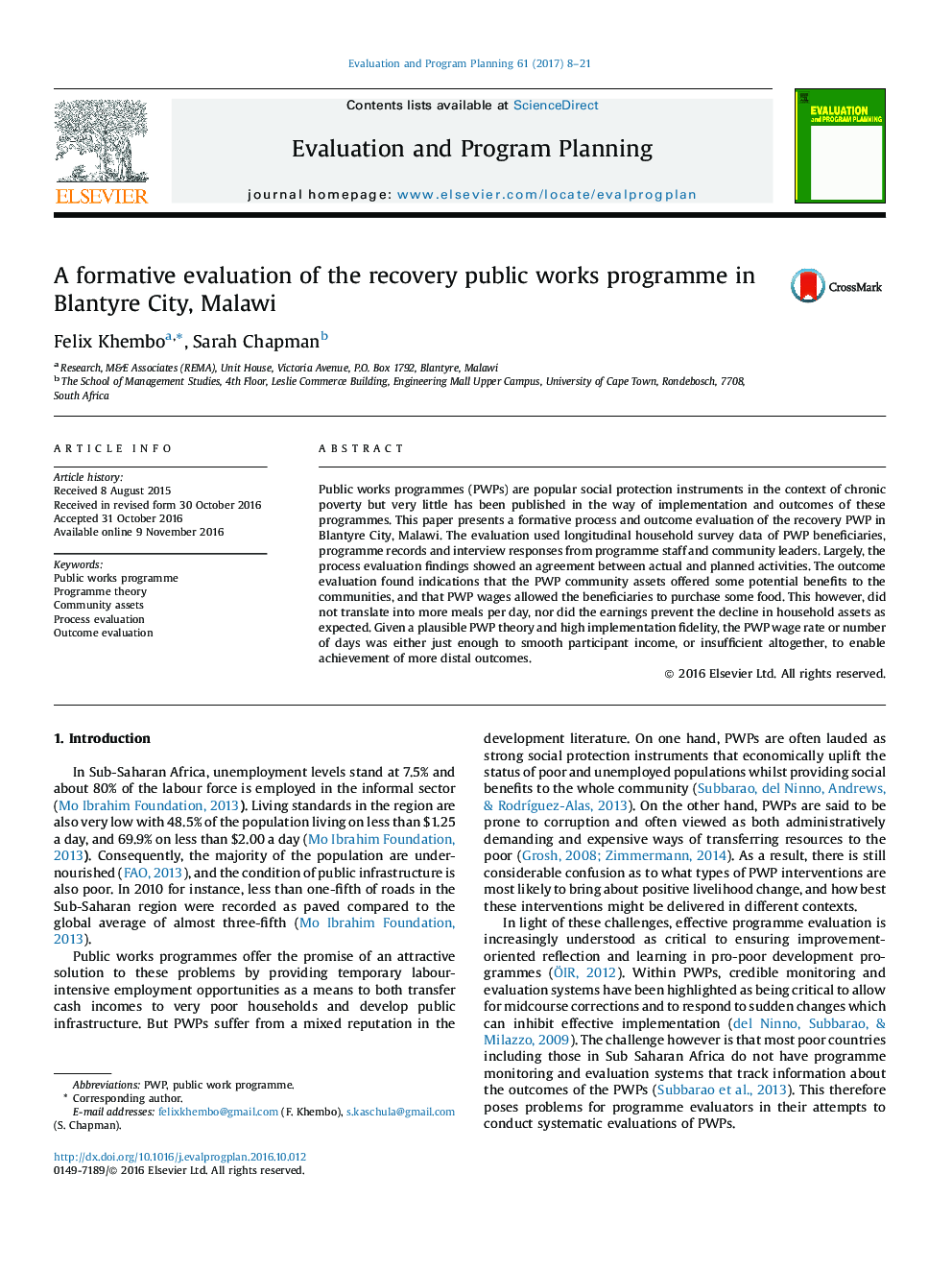| کد مقاله | کد نشریه | سال انتشار | مقاله انگلیسی | نسخه تمام متن |
|---|---|---|---|---|
| 4931003 | 1432708 | 2017 | 14 صفحه PDF | دانلود رایگان |
- Largely, there was a match between actual and planned activities.
- The PWP community assets offered some potential benefits to the communities.
- The PWP wages allowed the beneficiaries to purchase some food.
- The PWP did not improve asset wealth, number of meals per day and income savings.
- The PWP wage rate or number of days was not enough to register distal PWP outcomes.
Public works programmes (PWPs) are popular social protection instruments in the context of chronic poverty but very little has been published in the way of implementation and outcomes of these programmes. This paper presents a formative process and outcome evaluation of the recovery PWP in Blantyre City, Malawi. The evaluation used longitudinal household survey data of PWP beneficiaries, programme records and interview responses from programme staff and community leaders. Largely, the process evaluation findings showed an agreement between actual and planned activities. The outcome evaluation found indications that the PWP community assets offered some potential benefits to the communities, and that PWP wages allowed the beneficiaries to purchase some food. This however, did not translate into more meals per day, nor did the earnings prevent the decline in household assets as expected. Given a plausible PWP theory and high implementation fidelity, the PWP wage rate or number of days was either just enough to smooth participant income, or insufficient altogether, to enable achievement of more distal outcomes.
Journal: Evaluation and Program Planning - Volume 61, April 2017, Pages 8-21
